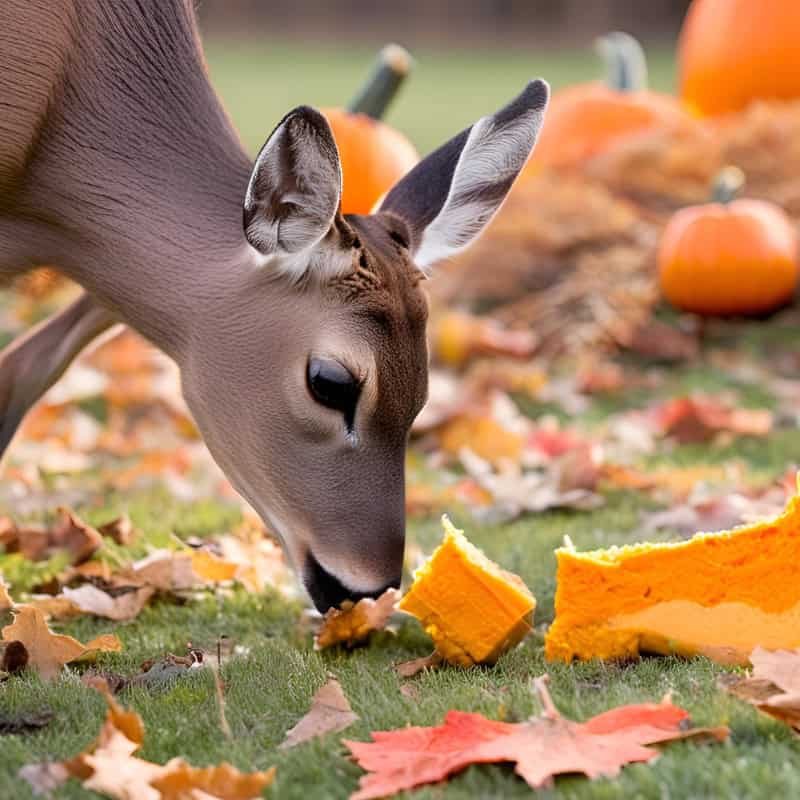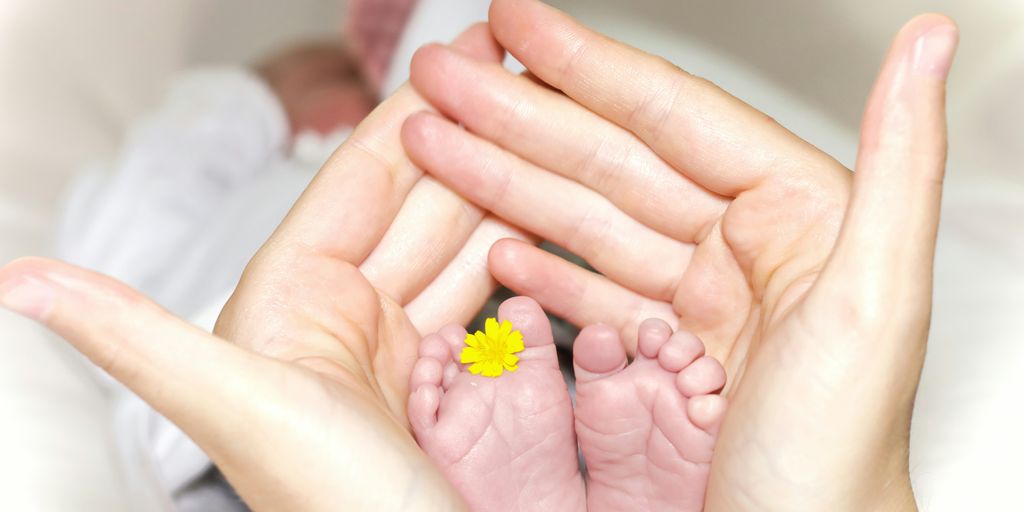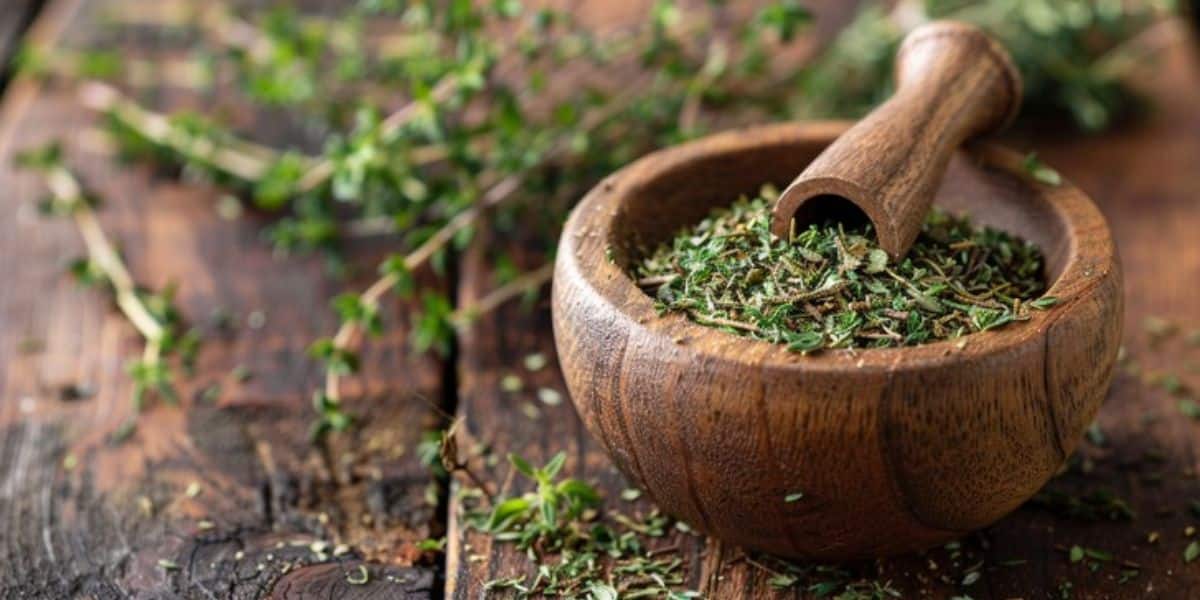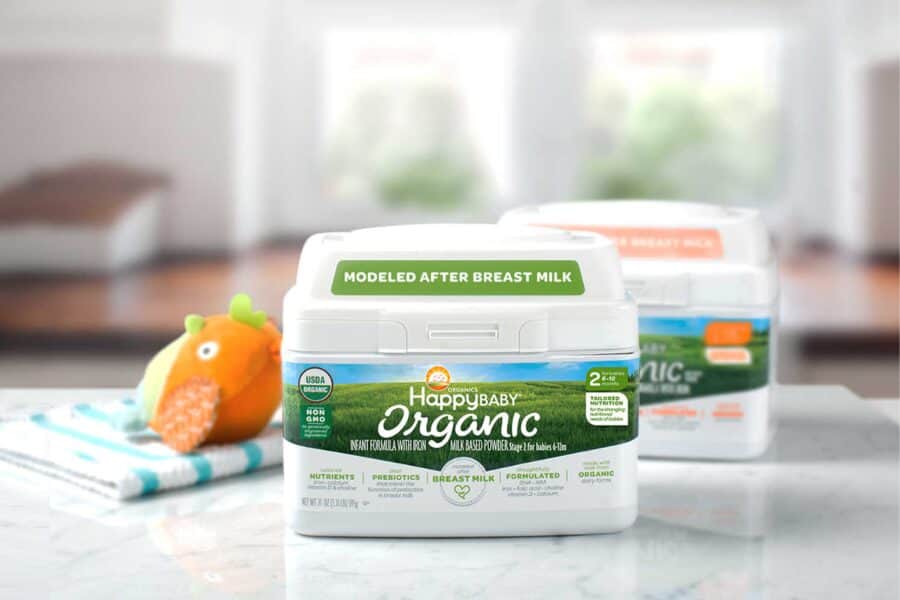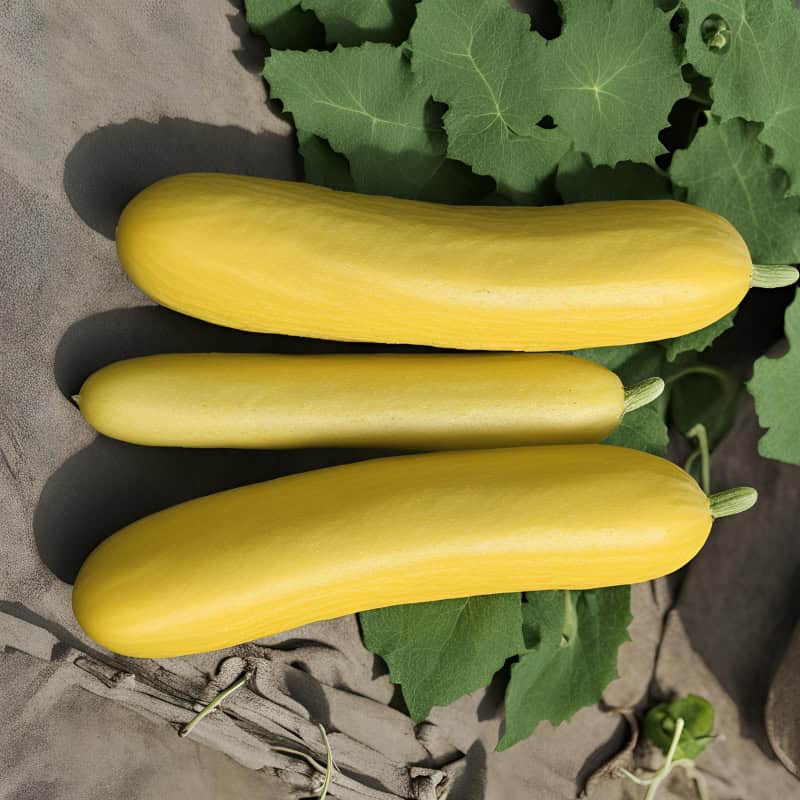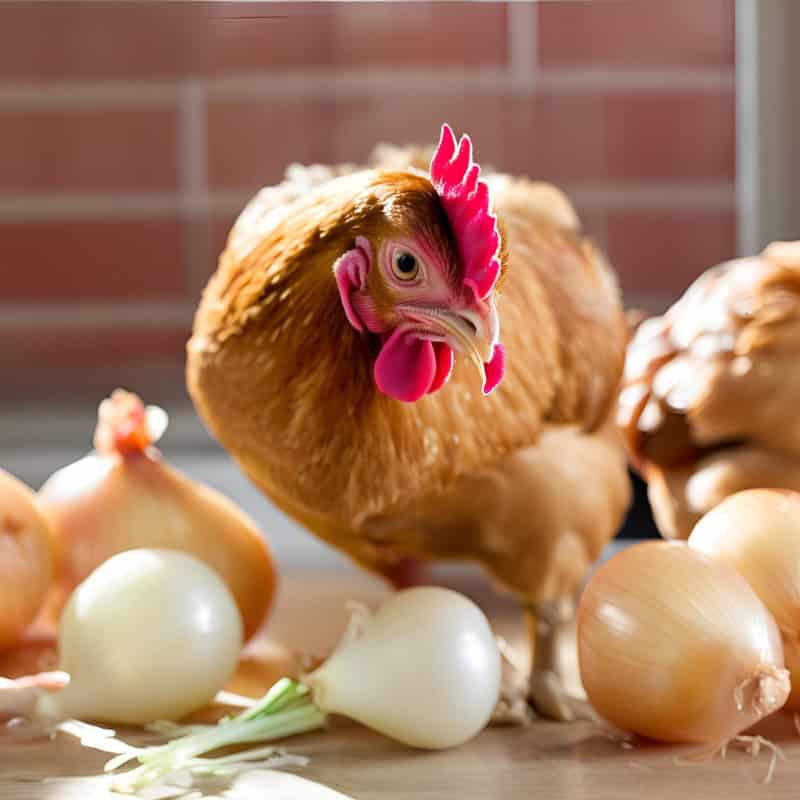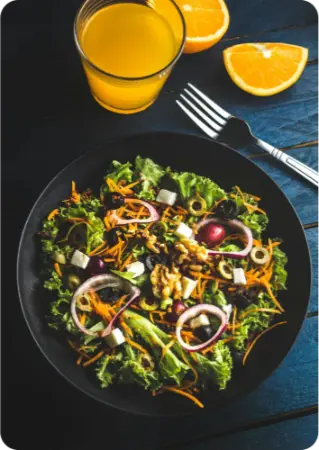Deer are fascinating creatures. Natural forest foragers who sometimes show up even in our backyards. Their graceful movements, swift runs, and iconic antlers must have captured your attention, but have you ever wondered what keeps these elegant animals fueled? Deer have a diverse diet that includes a variety of foods found in their natural habitat.
You must be wondering: Can deer eat fruits and vegetables? And if yes, do deer eat pumpkins too? Well, the answer is yes!
In this article, we’ll explore how and why pumpkins are part of a deer’s diet, a pumpkin’s nutritional profile, and the best practices for feeding pumpkins to deer.
Understanding Deer Diet

A deer diet isn’t as complicated as people make out to be. Deers have evolved to sustain themselves without any human intervention. However, if you wish to support local wildlife, you can supplement their food with stuff from your pantry, as well as ensuring the availability of natural forage.
Being herbivores, they primarily consume plants. Leaves, twigs, and berries are very common in a deer’s diet. In addition, fruits and vegetables can also be a part of their diet, providing essential nutrients and variety. Including a variety of foods in their diet helps deer meet their nutritional needs throughout the year. It also supports their overall health, contributing to strong bones, a healthy coat, and reproductive success.
Here’s what a healthy adult deer can eat:
Grasses: During the spring and summer, deer consume a lot of green vegetation. Grasses provide essential nutrients and are easily accessible in many habitats. Young, tender grasses are particularly favored due to their high nutrient content and digestibility.
Leaves and Twigs: In addition to grasses, deer browse on leaves and twigs of various trees and shrubs. This type of feeding is especially common in the fall and winter, when other food sources are less abundant. The leaves and twigs provide fiber and other nutrients that are vital during these leaner months.
Acorns and Other Nuts: Acorns are a crucial part of the deer’s diet in the fall. They are high in fats and proteins, which help deer build fat reserves for the winter. Other nuts, such as chestnuts and beechnuts, are also consumed when available.
Berries and Veggies: Deer enjoy a variety of fruits and berries, which are rich in vitamins and antioxidants. Berries such as blackberries, blueberries, and raspberries are commonly eaten. While not always a natural part of their wild diet, deer will eat vegetables if they are accessible. Garden vegetables like carrots, lettuce, and beans can attract deer, providing them with additional nutrients.
Occasional sweet treats are completely okay, and recommended for those interested in bonding with their backyard deers. A deer’s ability to adapt their diet based on seasonal availability helps them thrive in diverse environments. But everything should be sparse and in complete moderation. Now, let’s answer the question we’re here for. Can you give pumpkin to deer?
Do Deer Eat Pumpkins?

Yes, deer can eat pumpkins. In the wild, deer are opportunistic feeders and will consume pumpkins if they come across them. Pumpkins can be found in abundance during the fall season, and deers are likely to nibble on pumpkins if given the chance.
Notably, a pumpkin’s bright orange color and sweet taste attracts deer. They might start by nibbling on the softer parts and eventually break open the pumpkin to eat the flesh inside. This behavior is often observed in areas where pumpkins are grown or displayed as decorations.
As a domestic feeder, pumpkins to deer can also be a way to provide them with extra nutrition during leaner times.
Nutritional Benefits of Pumpkins for Deer

Pumpkins are not only a tasty treat for deer but also offer several nutritional benefits. They are rich in vitamins and minerals, including vitamin A, vitamin C, and potassium. These nutrients can support a deer’s overall health, promoting good vision, a robust immune system, and healthy muscle function. Additionally, pumpkins are high in fiber, aiding in proper digestion.
Vitamin A is crucial for deer as it supports eye health, which is important for navigating their environment and avoiding predators. Vitamin C boosts their immune system, helping them fight off diseases and infections. Potassium is essential for maintaining proper muscle function and electrolyte balance.
The high fiber content in pumpkins aids in digestion, ensuring that deer can process their food efficiently. This is particularly beneficial during the winter when their diet consists mostly of woody browse, which is harder to digest.
Lastly, the natural sugars in pumpkins provide a quick source of energy, which is especially beneficial during the colder months when other food sources might be scarce.
Now that you have read about the nutritional benefits of pumpkins, you must be wondering if it is safe to feed pumpkins to deer. Let’s dive into these details in the following section.
Make Sustainable Pet Care Decisions With Ease! Check Out Ecowiser’s Pet Supplies Today And Avail Exciting Discounts!

Is It Safe to Feed Pumpkins to Deer?
Feeding pumpkins to deer is generally safe, but there are some considerations to keep in mind. 80% of a deer’s diet should consist of browse and forbs. Pumpkins should be offered in moderation to prevent digestive issues. It’s essential to provide fresh pumpkins rather than rotting ones to avoid the risk of foodborne illnesses. As per Sharpes Farm Feeds, the pumpkin should be chopped into small, manageable pieces to prevent choking hazards.
Rotting pumpkins can harbor harmful bacteria and mold, which can make deer sick. Always ensure that the pumpkins you offer are fresh and free from spoilage. It’s also a good idea to clean the pumpkins to remove any pesticides or dirt that could be harmful.
To ensure that these innocent creatures stay healthy and active with their diet, let’s learn about the best practices for feeding pumpkins to deer.
How to Feed Pumpkins to Deer?

Don’t just throw the whole big vegetable their way. Instead, here’s the best practise of feeding pumpkins to deers:
1. Remove the seeds: Remove the seeds and cut the pumpkin into small, manageable pieces.
2. Offer in Moderation: Provide pumpkins as a treat rather than a staple food. A few pieces at a time are sufficient.
3. Monitor the Deer: Observe how the deer respond to the pumpkin and ensure they are eating it without any issues.
4. Seasonal Feeding: Pumpkins can be a great seasonal treat during the fall, aligning with their natural availability.
Wondering why you’re removing the seeds? Well, by doing so, you’re reducing the risk of choking or digestive blockages. Cutting the pumpkin into small pieces makes it easier for deer to eat and digest. Offering pumpkins in moderation ensures that they complement, rather than replace, the deer’s natural diet.
Please Note: Monitoring the deer’s response is important. If you notice any signs of digestive distress or if the deer seems uninterested, it might be best to reduce the amount or frequency of feeding. Seasonal feeding aligns with the natural availability of pumpkins and supports the deer’s nutritional needs during the fall.
Other Foods That Are Healthy for Deer
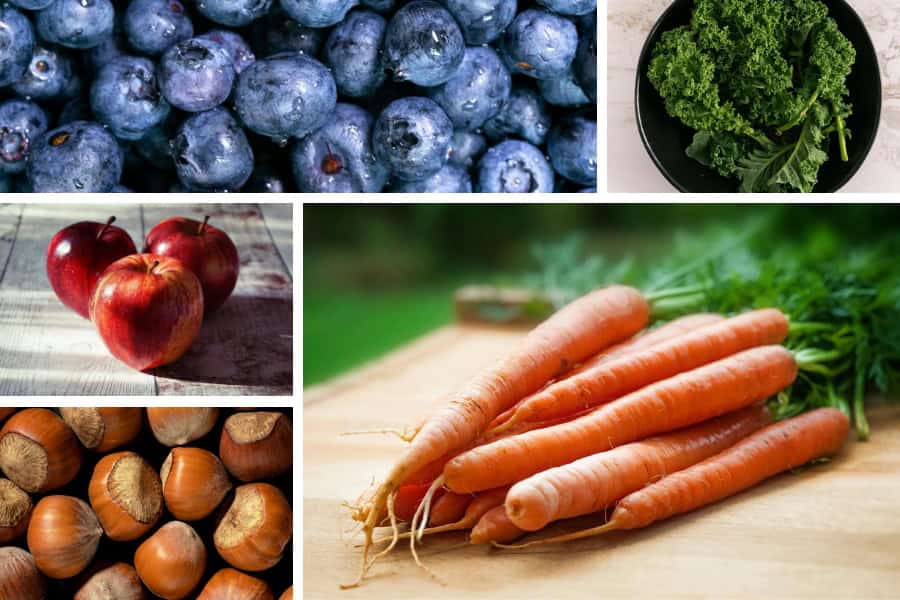
As per What Do Deer Eat, it’s crucial to maintain a balanced diet that mimics their natural food sources. In addition to pumpkins, there are several other foods that are healthy for deer:
Apples: Apples are rich in vitamins, particularly vitamin C, and provide a sweet treat that deer love. They are also high in dietary fiber, which aids in digestion. Apples can be a great occasional snack, especially when fresh and free from pesticides.
Carrots: Carrots are high in beta-carotene, which converts to vitamin A in the body. This nutrient is essential for eye health and overall immune function. Carrots also offer a crunchy texture that deer enjoy, making them an appealing addition to their diet.
Acorns: Acorns are a natural food source that is high in fats and proteins, essential for building energy reserves, especially in the fall. Acorns help deer prepare for the winter months by increasing their fat stores, which provide energy and insulation during cold weather.
Berries: Berries such as blackberries, blueberries, and raspberries are rich in antioxidants and vitamins, including vitamin C and vitamin K. These nutrients support overall health and help protect against diseases. Berries are often part of a deer’s natural diet and can be a healthy addition when they are available.
Leafy Greens: Vegetables like kale, spinach, and lettuce can also be beneficial. They are high in vitamins A and C, as well as calcium and iron. Leafy greens provide essential nutrients that support bone health, immune function, and overall vitality.
Nuts and Seeds: In addition to acorns, other nuts and seeds can be nutritious. For example, chestnuts and beechnuts are also high in fats and proteins. Sunflower seeds, while not commonly found in the wild, can be a treat in moderation, offering healthy fats and protein.
Root Vegetables: Other root vegetables, like sweet potatoes and beets can be offered to deer. They are nutrient-dense and provide vitamins and minerals that support overall health. These vegetables should be cut into manageable pieces to make them easier for deer to consume.
While these foods can provide essential nutrients, they should not replace the deer’s natural forage, which includes a wide range of plants, leaves, twigs, and other wild foods. Maintaining a balanced diet helps ensure that deer receive all the necessary nutrients to stay healthy and thrive in their environment.
Summing Up!
Feeding pumpkins to deer can be a safe and enjoyable way to provide them with a nutritious treat. Providing pumpkins not only adds a nutritious boost to their diet but also lets you connect with nature in a special way. Watching deer happily nibble on pumpkins can be a delightful experience, making it a win-win for both you and the deer. So next time you have some extra pumpkins, consider sharing the love with your local deer—they’ll thank you for it!
Remember to give pumpkins in moderation—too much of a good thing can sometimes lead to tummy troubles. Plus, it’s always a good idea to keep an eye on how they react, just to be sure everything’s going smoothly.
Ecowiser wants you to treat all animals with kindness. Whether it’s deers or chickens. If you found this helpful, check out whether chickens can eat onions.
Frequently Asked Questions (FAQs)
1. Can deer eat other fruits and vegetables?
Yes, deer can eat a wide variety of fruits and vegetables, which can provide essential nutrients and add variety to their diet. Some fruits and vegetables that deer enjoy include apples, pears, carrots, and sweet potatoes. These foods are not only tasty for deer but also offer vitamins and minerals that support their overall health.
2. Are there any foods deer should avoid?
Deer should avoid avocados, onions, and garlic, nightshade vegetables, chocolate and caffeine, processed foods, and rhubarb (oxalic acid). These foods can cause serious health issues. Stick to natural, unprocessed foods typical of their diet and introduce new foods gradually.
3. Are pumpkins safe for deer?
Yes, pumpkins are safe for deer and can provide a nutritious treat rich in vitamins and fiber. However, they should be offered in moderation to prevent digestive issues. Always introduce pumpkins gradually and observe the deer’s response to ensure their health and safety.
4. What are the best ways to feed pumpkins to deer?
To feed pumpkins effectively, it’s advisable to cut them into manageable pieces after removing seeds to avoid choking hazards and place them in areas where deer frequently visit, such as feeding spots or trails. However, moderation is key to prevent overfeeding and ensure they continue to forage for their natural diet, maintaining a balanced nutritional intake
